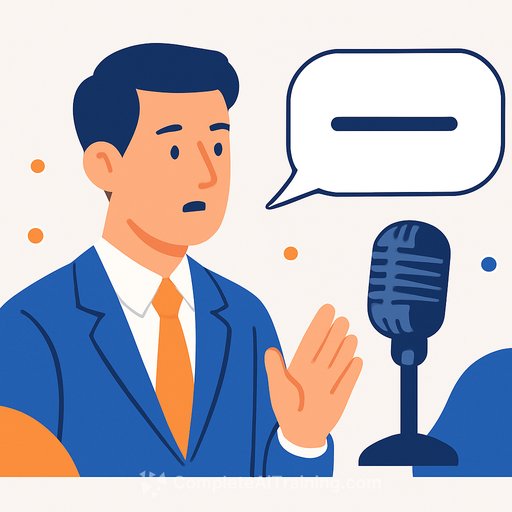AI Can Kickstart Creativity-Without Replacing Writers, Says Bloomsbury CEO Nigel Newton
AI is not here to take your job. It's here to get you past the blank page. That's the message from Nigel Newton, founder and CEO of Bloomsbury, who says AI can "write the first paragraph, or first chapter, and get you back in the zone."
Newton is clear on one thing: readers still trust names that signal authority. "There will be some shoddy content out there, so people will turn increasingly to sources of authority for reassurance." Translation: your voice, your byline, your standards-those are your moat.
What this means for working writers
Use AI as a starting block, not a ghostwriter. Let it spark ideas, structure your thoughts, and reduce friction. You keep the judgment, the taste, and the final pass.
- Ask for five opening angles for your topic. Pick one and rewrite it in your tone.
- Generate a tight outline with section headers and transitions. Fill in the gaps yourself.
- Have it propose counterarguments or objections. Respond with your take.
- Rewrite a rough paragraph in three styles (plain, punchy, poetic). Choose the best phrasing.
- Summarize research into bullet points with sources. You verify, then cite.
A 10-minute "back-in-the-zone" routine
- Minute 1-2: Brain-dump the problem you're stuck on.
- Minute 3-4: Ask AI for three outlines based on your notes. Pick one.
- Minute 5-7: Ask for an opening paragraph. Rewrite it in your voice.
- Minute 8-9: Generate three subheads + transitions. Keep what fits.
- Minute 10: Set a timer for 20 minutes and draft without editing.
Signals from publishing you shouldn't ignore
Bloomsbury reported £24m profit before tax for the first half of the year, down from £26.6m in 2024-"in line with expectations" after a standout year driven by Sarah J. Maas' House of Flame and Shadow and backlist sales. Its Academic & Professional division grew 20% to £46.1m after signing its first non-exclusive AI licensing agreement.
This points to two shifts: publishers will work with AI-on their terms-and audiences will put more weight on trusted names. If quality varies, authority matters more. Your strategy should reflect that.
- Build proof of authority: consistent bylines, clear sourcing, and a recognizable style.
- Publish where credibility compounds-your site, strong newsletters, respected outlets.
- Document your research and process. Show your work; earn trust.
- Know your contracts. Understand data, licensing, and how your work may be used by AI.
Practical guardrails for using AI
- Never ship first drafts from AI. Treat outputs as clay, not sculpture.
- Feed it your notes, briefs, and samples to keep consistency-then edit hard.
- Use it to save time on structure and summaries; spend your time on voice and insight.
- Double-check facts and names. Your reputation is the product.
The takeaway
AI can lower the cost of starting. Authority raises the value of finishing. Use the tool to move faster, then rely on your taste to ship better.
If you want a curated starting point for tools that help with ideation, outlining, and drafting, explore this list: AI tools for copywriting.
Your membership also unlocks:






